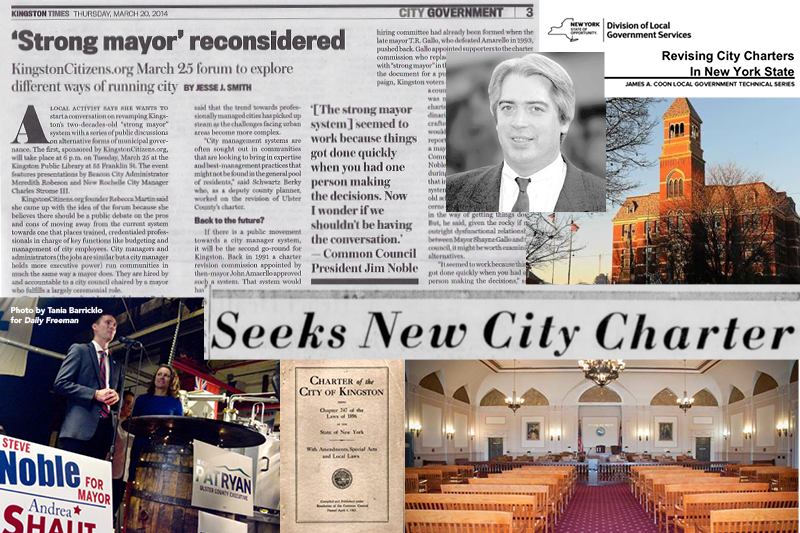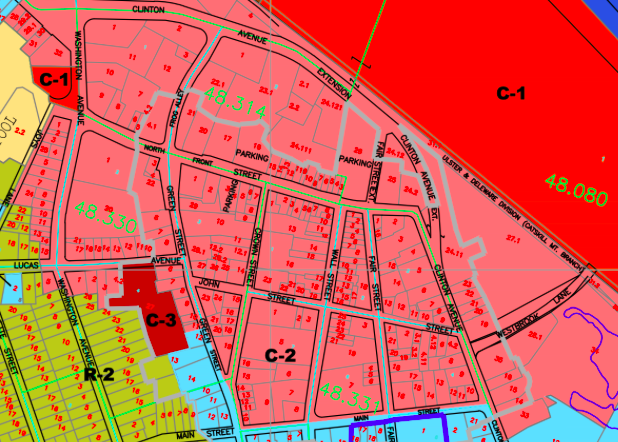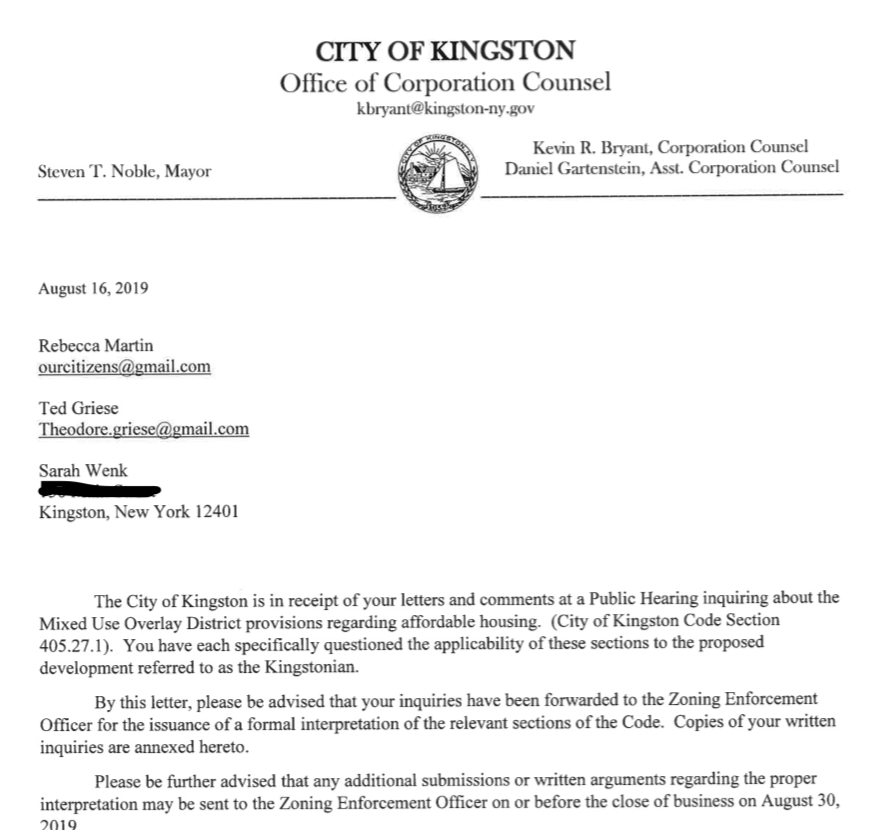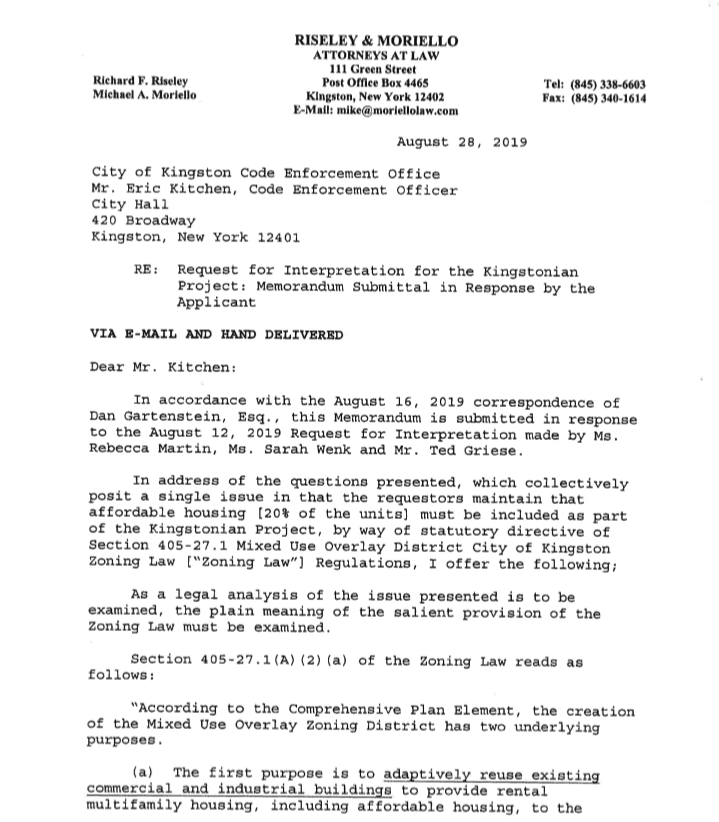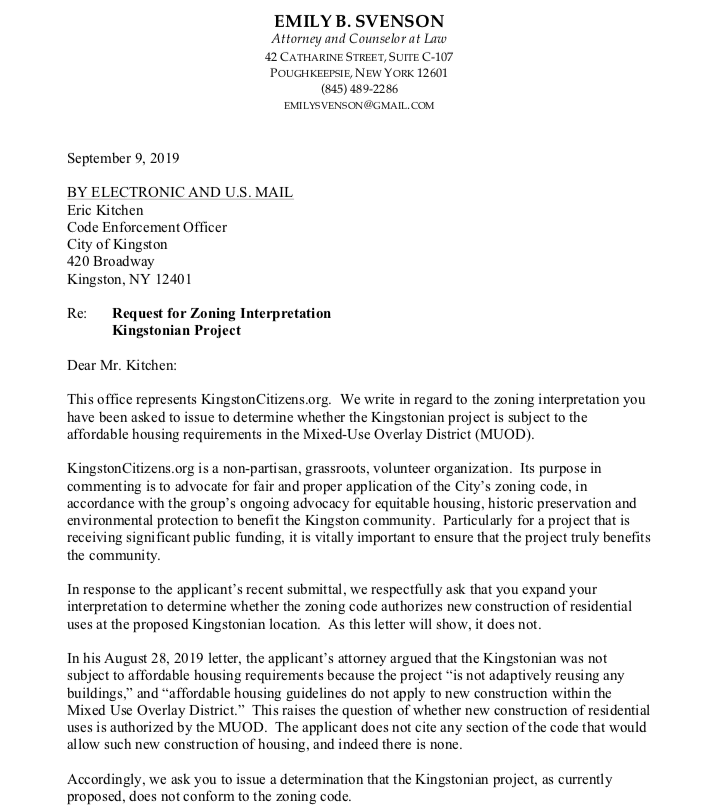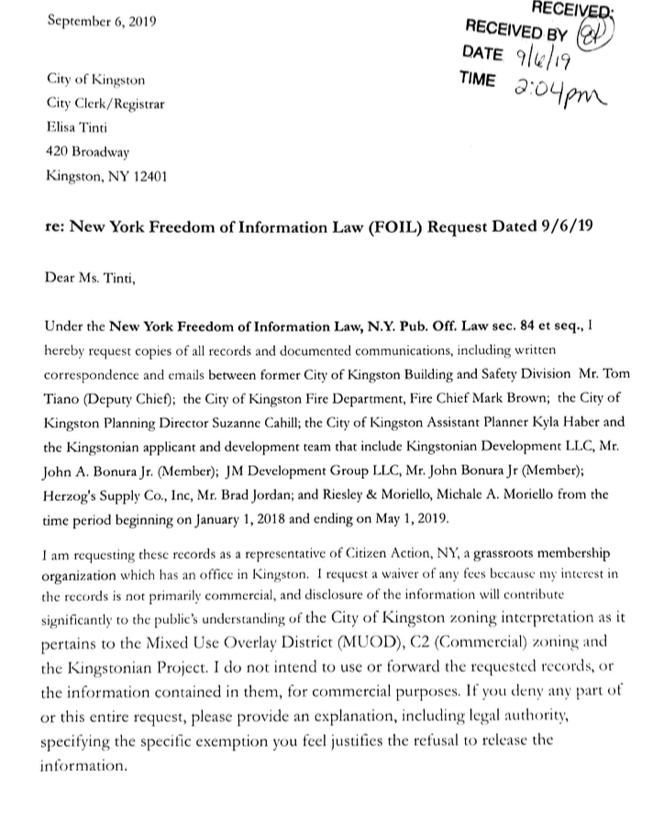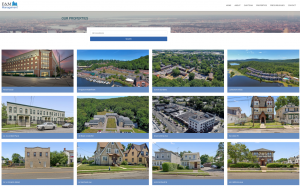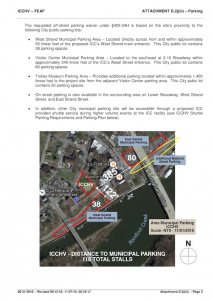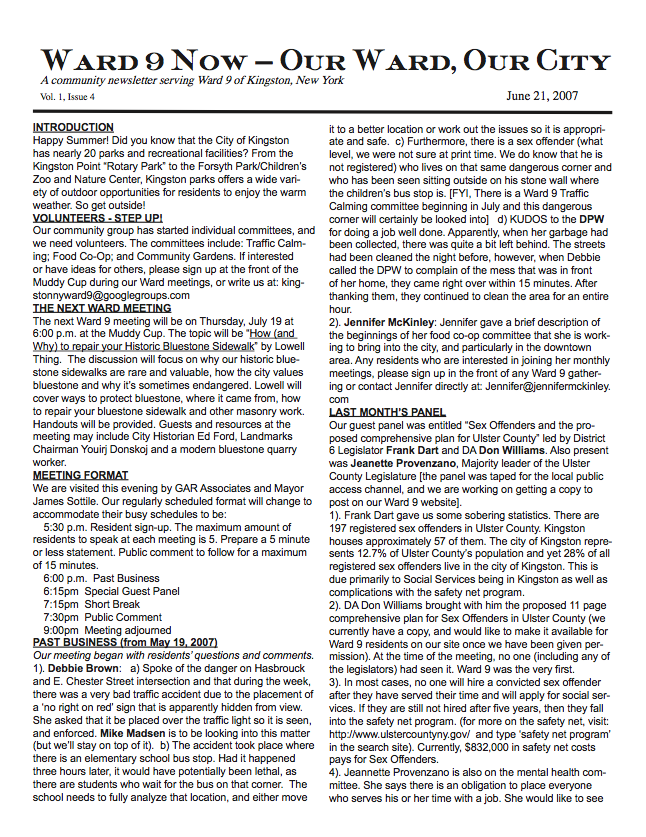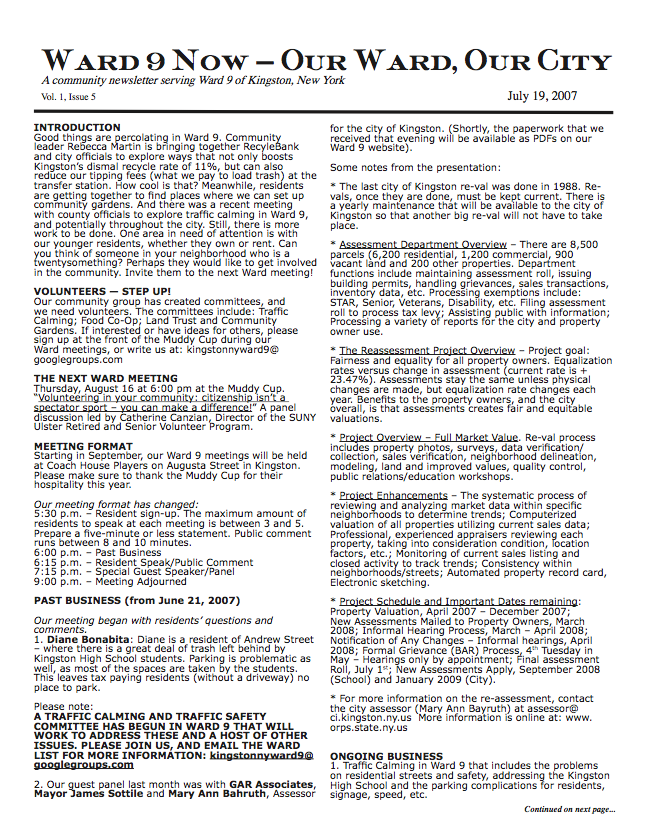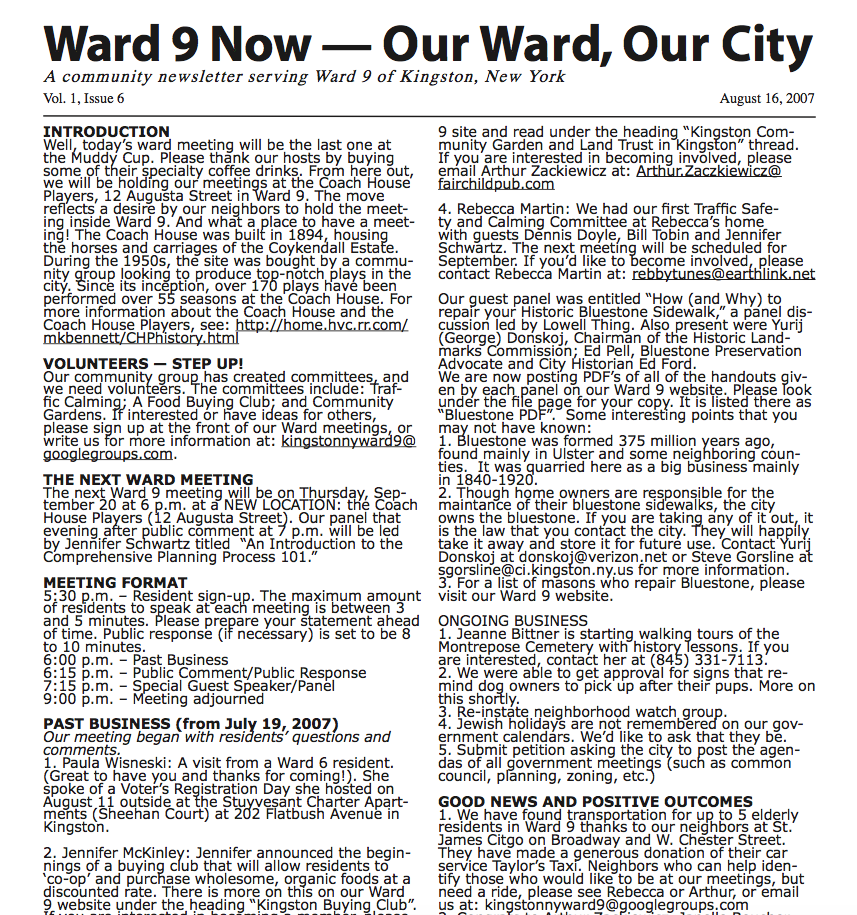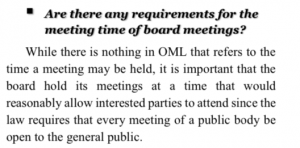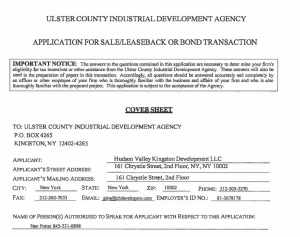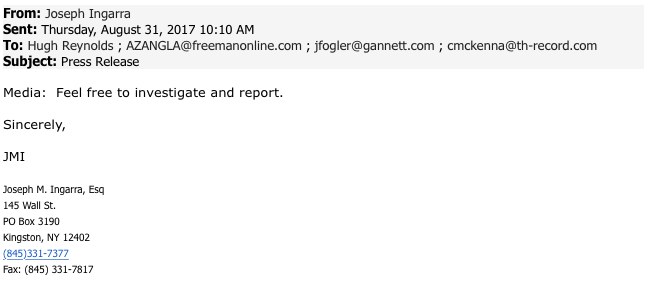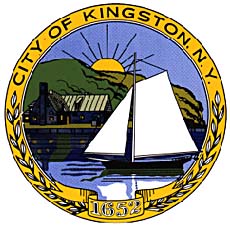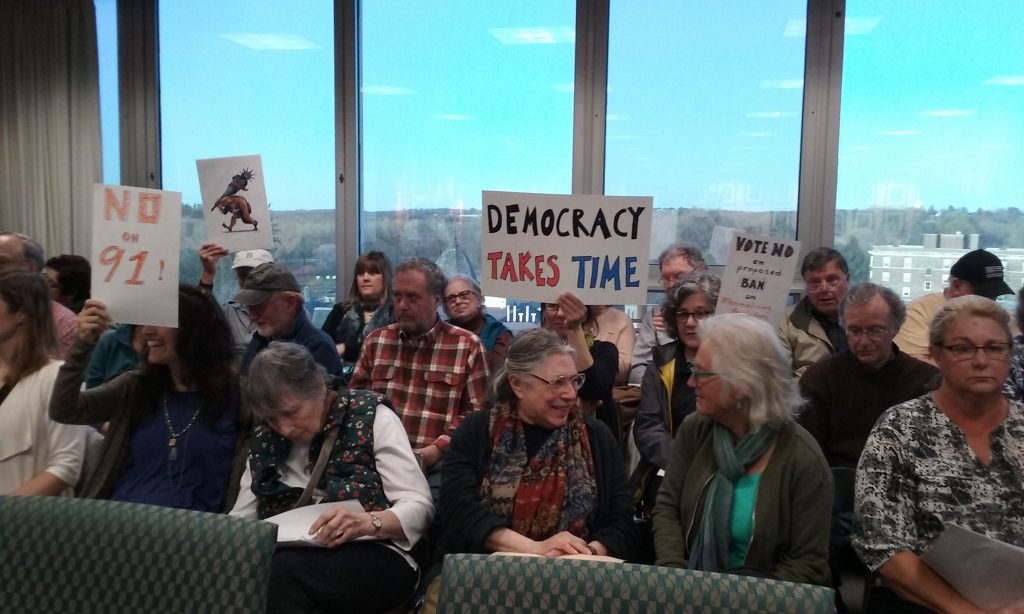
WHAT TO EXPECT
VISIT: Our Facebook Event Page
On Sunday, March 4th, a Public Comment Brainstorming Session will occur at the Town of Ulster Senior Center located at 1 Town Hall Drive in Lake Katrine, NY (adjacent to the Town of Ulster Town Hall).
Citizens will have the opportunity to work together with experts to draft strong comments of concern for study as it pertains to the Lincoln Park Grid Support Center, a gas-fired power plant being proposed in the Town of Ulster. Participants will work with a projected Google Doc. The afternoon will be facilitated by Rebecca Martin (KingstonCitizens.org), Laura Hartman and Regis Obijiski (TownOfUlsterCitizens.org). Please bring your computer and any materials you wish to share with others.
As this is a ‘potluck’ affair, citizens are invited to bring a dish to share. Food will be organized and served throughout the day thanks to Vince Guido.
This event is open to all citizens, NFP and municipal leaders wanting to contribute.
Sponsored by TownOfUlsterCitizens.org with support from KingstonCitizens.org
SCHEDULE AND EXPERTS
10am – 11:30am: ON EMISSIONS AND NOISE
Experts on Hand will include Evelyn Wright, Energy Economist, Sustainable Energy Economics, and member of Citizens for Local Power
11:30am – 1:30pm: ON COMMUNITY CHARACTER, COMMUNITY SERVICES, RUPTURES/FAILURES AND CULTURAL RESOURCES.
Experts on hand will include Kevin McEvoy
1:30pm – 2:30pm: ON FLORA AND FAUNA
Experts on hand will include Nora Budziack
2:30pm – 4pm: ON WATER (SURFACE, GROUND, WETLANDS, STORM WATER, WASTEWATER AND INFRASTRUCTURE)
Experts on hand will include TBA
4pm – 5pm: ON SOCIOECONOMIC, FISCAL AND ALTERNATIVES
Experts on hand will include Audrey Friedrichsen, Land Use and Environmental Advocacy Attorney, Scenic Hudson
VISIT ToU “Proposed Project” page for all relevant Lincoln Park Grid Documents.
By Rebecca Martin
On Sunday, March 4th, Citizens of Ulster County (and beyond) are invited to a Public Comment Brainstorming session in the Town of Ulster. The event, created to support citizens in creating Scoping comments for the proposed Lincoln Park Grid Support Center project, a gas-fired peak power plant project in the Town of Ulster, will occur from 10am – 5pm at the Town of Ulster Senior Center (1 Town Hall Drive) in the Town of Ulster.
With a positive declaration announced on February 1st, the Town of Ulster (as Lead Agency) also released the Draft Scope for the proposal. Coalition partners (that include Catskill Mountainkeeper, KingstonCitizens.org, Scenic Hudson, Riverkeeper, CAPP – NY and Sierra Club Mid-Hudson Valley) and the public requested through letters and petitions a 90 day public comment period. The Town approved 50 days, instead of 30 – making the deadline for public comment to be Thursday, March 22nd.
What is Scoping in SEQR (State Environmental Quality Review) and why is it so important to the public and a project such as the proposed GlidePath Lincoln Park Grid Support Center, a gas-fired peak power plant in the Town of Ulster?
The purpose of scoping is to narrow issues and ensure that the draft EIS (Environmental Impact Statement) will be a concise, accurate and complete document that is adequate for public review.
The scoping process is intended to:
- ensure public participation in the EIS development process;
- allow open discussion of issues of public concern; and
- permit inclusion of relevant, substantive public issues in the final written scope.
The scoping process can also allow the lead agency and other involved agencies to reach agreement on relevant issues in order to minimize the inclusion of unnecessary issues. Finally, scoping should help the sponsor avoid the submission of an obviously deficient draft EIS.
In a recent document provided to us by Andy Willner (founder of NY/NJ Baykeeper), he outlined for the public “SEQR for GlidePath Scoping”:
The Scope of Work shall require the applicant to:
- consider relevant environmental impacts, facts and conclusions as required under SEQR;
- assess relevant environmental, social, economic and other adverse impacts;
- certify how this project can be consistent with social, economic and other essential considerations
- assess how the action avoids or minimizes adverse environmental effects to the maximum extent practicable, and that adverse environmental impacts will be avoided or minimized to the maximum extent practicable.
This is the “teeth” of SEQRA, and the only provision which clearly takes it beyond a mere environmental full disclosure procedure, and requires substantive results:
- Therefore by including these analyses in the required scope of work the agency will have the information to enable it to consider fully the environmental consequences and to take these consequences into account when reaching a decision whether or not to approve an action.
The scope of work shall include language that requires the applicant to prepare an EIS that must assess:
- the environmental impact of the proposed action including short-term and long–term effects,
- any adverse environmental effects,
- any irreversible and irretrievable commitments of resources,
- and “growth inducing aspects” of the proposed action.
The Scope of Work must require the applicant to consider all viable alternatives:
- ………….contain an evaluation of “alternatives to the proposed action. The analysis of alternatives has been called the “driving spirit” of the SEQRA process. The “range of alternatives must include the no-action alternative,” and “may also include, as appropriate, alternative:
- sites;
- technology;
- scale or magnitude;
- design;
- timing;
- use;
The Scope of work requires the applicant to assess the cumulative Impacts to water, air, wildlife, and quality of life:
What are the cumulative impacts?
- These are impacts on the environment that result from the incremental or increased impact of an action(s) when the impacts of that action are added to other past, present and reasonably foreseeable future actions.
- Cumulative impacts can result from a single action or a number of individually minor but collectively significant actions taking place over a period of time.
- Either the impacts or the actions themselves must be related.
- Cumulative impacts must be assessed when actions are proposed to or will foreseeably take place simultaneously or sequentially in a way that their combined impacts may be significant. Considering the cumulative effects of related actions insures against stratagems to avoid the required environmental review by breaking up a proposed development into component parts which, individually, do not have sufficient environmental significance.”
Because it is often difficult to distinguish between segmentation and the failure to address cumulative impacts and courts often muddle the concepts the applicant must include in its scope of work information to assist the agency in determining whether or not the project will both address cumulative impacts and avoid segmentation:
- SEQRA generally prohibits “segmentation,” which is defined as “the division of the environmental review of an action such that various activities or stages are addressed under this Part as though they were independent, unrelated activities, needing individual determinations of significance. Accordingly, “[e]nvironmental review of the entire project is required before ‘any significant authorization is granted for a specific proposal.’ The SEQRA regulations prescribe the basic contents of an EIS
In the EIS, the lead agency is required to
- identify the relevant areas of environmental concern,
- take a “hard look” at them,
- and make a “reasoned elaboration” of the basis for its determination.
Additionally because this is a complex process the agency shall require the applicant to provide not just access to all of its consultants work products but funds to assist the agency in analyzing the materials to enable it to make a determination. The agency may use these funds to hire professional engineers, environmental consultants, and for legal advice.
IMPORTANT DOCUMENTS:
VISIT ToU “Proposed Project” page for all relevant Lincoln Park Grid Documents.
VIEW: SEQR and GlidePath by Andy Willner
VIEW: SEQR Scope of Work by Andy Willner
HEADS UP: ON EMINENT DOMAIN AND THE TOWN OF ULSTER.
At the Town of Ulster Town Board Workshop meeting on March 1st, an item on eminent domain near the proposed Lincoln Park Grid Support Center project lands certainly caught my attention.
During the meeting, Supervisor James Quigley’s description of “Discussion on start of Eminent Domain Proceedings on a portion of Parcel SBL 48.12-1-20, corner of Miron Lane and Sottile Blvd, owned by Kingston Landing Development Corp” seemed to indicate nothing more than the opportunity for the Town to acquire a parcel via eminent domain that would allow its entrance to the transfer station to be free and clear forevermore.
Later, during the public comment period, Town of Ulster citizen Dan Furman asked the Town Board, “….isn’t this what GlidePath is buying?”
“Yes. You’re absolutely right….the eminent domain takes it away from them before they buy it.” said Supervisor Quigley.
The Town Board has given permission for a survey to take place, and for Town of Ulster lawyers to start drafting paperwork for the transaction to be approved at the next Town Board meeting (on March 15).
To be sure, it is recommended that citizens look into this land agreement more fully and request an explanation as to the suddenness of this transaction and whether or not it is an emergency situation. If it is not, then perhaps it’s wise to request that the Town of Ulster delay any activity on lands that involves GlidePath and the Town of Ulster until the SEQR review is complete.
LISTEN Town of Ulster Town Board Workshop Meeting.
@ 6:28 – 9:06 – An explanation by the Town of Ulster Town Supervisor James Quigley on the need for eminent domain, where there is no mention of GlidePath.
@ 28:23 – 29:00 – Town of Ulster Citizen Dan Furman inquires whether or not the parcel under discussion re: eminent domain is a part of what GlidePath is looking to acquire. “Yes, you are absolutely right” says Supervisor Quigley.


